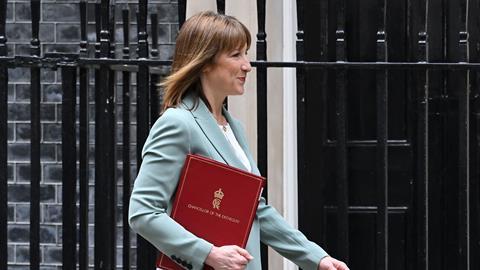Tax breaks enjoyed by members of limited liability partnerships will be closed in next month’s budget, according to press reports today. According to The Times, chancellor Rachel Reeves will impose a new charge on people who use limited liability partnerships as she tries to fill a £30 billion hole in the public finances.
Partnerships currently offer significant tax benefits over ordinary employment. LLP partners are treated as self-employed so they are not subject to employer national insurance contributions. They also pay a lower rate of employee national insurance. According to the Centre for the Analysis of Taxation (CenTax), solicitors receive a fifth of all partnership income, averaging more than £300,000 a year each.
Read more
Reeves is said to consider this unfair and is expected to announce changes to the system. Such a move was widely expected in last autumn's budget but the public finance crisis has put more pressure on the chancellor. She has repeatedly said that 'those with the broadest shoulders' should pay their fair share of tax. It has been estimated that closing loophole could raise £4bn from just the four 'magic circle' LLPs alone.
Former Clifford Chance tax chief Dan Neidle, of thinktank Tax Policy Associates, has analysed how the change would hit top-earners in the pocket. 'A partner earning £2m currently takes home £1,072k. If employer NICs applied, she’d take home £934k – meaning £138k more tax. Her effective tax rate has gone up from 46% to 53% and her marginal tax rate is now 54% This puts our £2m partner in the same position as (say) a trader at a bank where their salary and bonus pot are together £2m. Previously she paid less tax; now she pays the same.'
Neidle also suggests that limiting the change to LLPs and not including traditional partnerships is illogical. He points out that one of the UK's most profitable firms - understood to mean Slaughter and May - is structured as a traditional partnership. He also predicts a potential exodus of high-earners to more congenial fiscal regimes, adding: 'Large law firms practise all over the world. In many cases it’s possible to do much the way work in Dubai as in London. So (at the margins) we will see some members of these firms move from London to Dubai to escape the tax. And not just Dubai – for various reasons, lawyers in many European countries pay lower tax than lawyers in the UK.'
Leading costs expert Jim Diamond, who has long charted the fast-rising chargeout rates of the biggest UK firms, believes the self-styled elite will also look to increase their fees further to shore up partner pay. 'As sure as night follows day, this will lead to increase legal fees and specifically hourly rates in major City law firms,' he told the Gazette. 'The City law firms way of dealing with issues like (since the 80s) has been to simply to jack up hourly rates. And when one moves, they all move.'
Reeves will certainly be lobbied hard to u-turn on the plan ahead of the 26 November budget. David McNeill, director of public affairs at the Law Society, said: 'Imposing a new tax on limited liability partnerships could be a big hit on the legal profession, a sector which the government is depending on as part of its growth strategy. Law partnerships don’t get the same tax breaks for investment as other businesses but are now having to pay the same levels of tax. On top of that, law firms are facing the risk of new regulation costs and bureaucracy. This makes no logical sense as a joined-up growth strategy.'
William Wastie, partner and the head of the professional practices group at Addleshaw Goddard, said: 'Tax neutrality between different business structures is a fair objective. In practice however the idea of extending employers' NICs to all LLP members distorts the true nature of membership of LLPs, bodies which were designed by parliament to be tax transparent and where members' capital is invested and at risk. To extend any such change to general partnerships which (as opposed to LLPs) carry joint and several liability between partners would fundamentally change the nature of partnership. LLPs are not just vehicles for high earners; they are the structure through which most professional firms invest, employ and share risk. Any sudden change could hit smaller partnerships and LLPs, distort reinvestment decisions, and undermine the UK's competitiveness.'
Sean Bannister, chartered tax adviser at Edwin Coe LLP said: 'The chancellor seems set to remove, in effect, the self-employed status of partnership members, as part of her bid to tax businesses more stringently. But this misunderstands partnerships. Partners in LLPs and other structures often have their own capital at risk. They are entrepreneurial, take genuine financial responsibility, and employ others. To target them again would deal a heavy blow to firms already managing rising costs. Any additional tax burden will inevitably slow investment and growth, undermining the very agenda the government says it wants to promote.'
Reeves is also expected to announce a 'mansion tax' on the sale of the most expensive homes.
This article is now closed for comment.






























22 Readers' comments